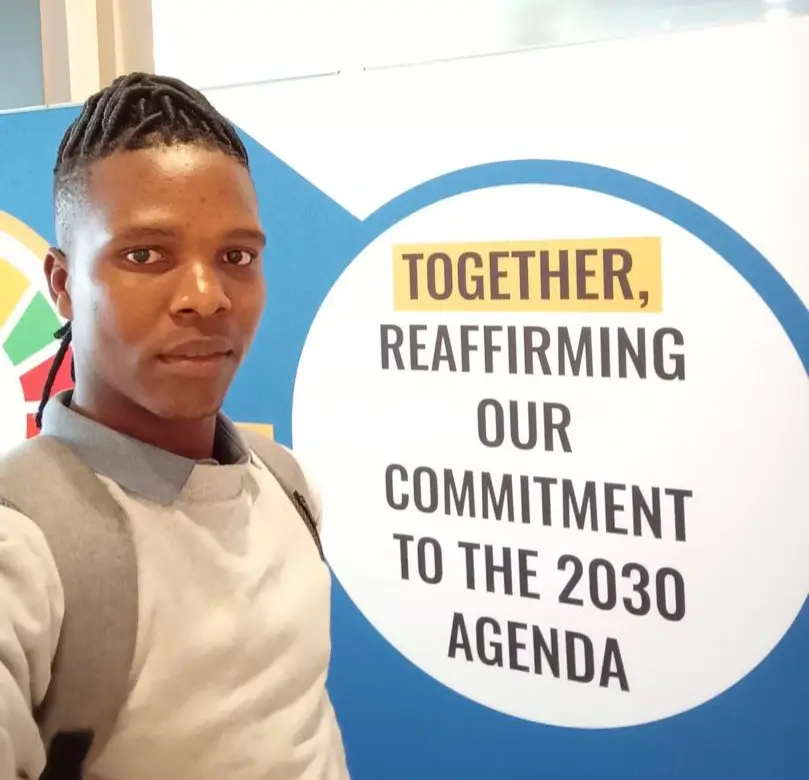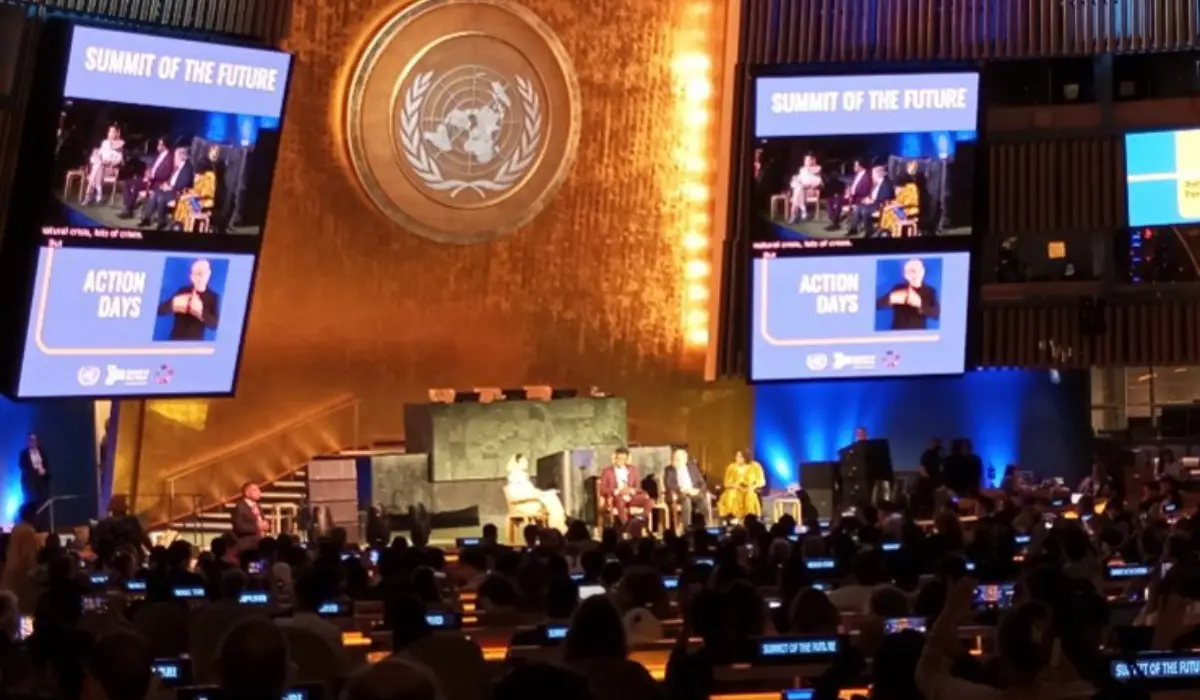The Summit of the Future brought together global leaders, innovators, activists, government representatives, and civil society leaders with a unified goal: to shape a more sustainable, just, and inclusive world. This great event was more than just another international gathering, it was a call to action, urging us to rethink global cooperation, human rights, and sustainability in unprecedented challenges.
As I reflect on the Summit’s significance, two key themes stand out: global solidarity and intergenerational equity. One of the most powerful messages echoed throughout the summit was the necessity of global solidarity. In the face of rising global inequalities, climate change, and ongoing humanitarian crises, the idea that “we are all in this together” gained renewed importance. No country, community, or individual can face these crises alone.
The Summit’s call for reinvigorated multilateralism emphasised the importance of cross-border cooperation among governments and civil society, private sectors, and grassroots movements. For LGBTQI+ communities, the emphasis on solidarity holds profound meaning. Seeing the conversation around inclusivity extend beyond traditional socio economic issues to encompass the fight for LGBTQI+ rights was heartening. Marginalised communities must be part of global solutions, not afterthoughts. As a representative of LGBTQI+ advocacy, I left the summit feeling a sense of renewed hope for global action that centres on justice for all, regardless of identity.
The Summit of the Future has positively impacted on my work as an advocate for gender and human rights by engraving me with sustainable knowledge of how different forms of discrimination, such as gender inequalities, and gender-based violence intersect and pose unbearable challenges for people across Africa. The Summit opened a space for reaffirmation of our global shared responsibility and bringing all actors from all spheres of life to recognise the need to champion gender transformative and inclusive approaches to achieving the Global 2030 target, which aligns with our strategy as MEA is to bring LGBTQI+ people to the centre of our programmes and to protect and promote their rights as part of our gender justice work.

However, it also opened a space focus as young leaders to connect and engage on how we as young people from all across the globe can engage in vital discussions to shape policy and accelerate change towards 2030, as part of my work to promote meaningful participation and inclusion of young people in key decision-making spaces, and the summit allowed us to craft sustainable solutions as global youth leaders on how we can ensure young people are the backbone and at the forefront of global development, which includes young people being at the forefront in championing gender equality and promoting positive masculinities. I personally feel this was a moment for me to collect, gather and document skills and experiences that other young people from across the globe are implementing to promote MIYP and integrate these skills within the African continent and within the organisation I am working. The MenEngage Africa work is to pioneer sustainable and positive youth leadership, the focus of MEA on youth leadership compliments with the Summit’s call for young people to occupy and hold spaces of power and pioneer global development.
The future belongs to the next generation, and this summit recognised that. Intergenerational equity emerged as a focal point of discussions, with youth voices being amplified across various platforms. This wasn’t just symbolic, there was an authentic commitment to empowering young people and ensuring that policies are developed with their future in mind. As someone representing youth, I appreciated this recognition and the practical steps being taken to integrate young leaders into decision-making processes.
This is crucial for LGBTQI+ youth, who often find themselves at the intersection of multiple forms of discrimination. The discussions around safeguarding the rights and well-being of younger generations, be it in terms of environmental stewardship, access to Education or protection from violence are deeply relevant to the queer community. The summit served as a reminder that our advocacy must always keep the needs of future generations in mind.
The Summit of the Future was a powerful reminder of the interconnectedness of our world and the urgent need for global solidarity and intergenerational equity. As we move forward, we must continue to advocate for a world where all individuals, regardless of their age, gender, sexual orientation, or other identities, can thrive. The future of our planet depends on it.

